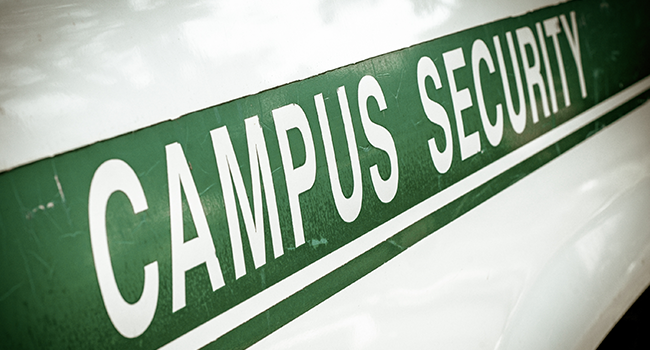
Area Colleges, Universities Learn from UNCC Shooting
Colleges and universities in the Carolinas are especially affected by the UNC Charlotte shooting that took place April 30, and are taking note of what can be learned from the tragedy.
- By Jessica Davis
- May 09, 2019
Colleges and universities in the Carolinas are particularly affected by the UNC Charlotte shooting that took place April 30 and left two dead and four injured. Area campuses are taking note of what can be learned from the tragedy in order to prevent another incident.
“It hits close to home just because geographically we work with a lot of the people that are directly impacted,” said Assistant Chief Wes Wiles of Winthrop University Police in Rock Hill.
Wiles said he only knows what’s been publicly released about the UNCC shooting, but said there are lessons to be learned even from those details.
“What I can say is it looks like when a plan is in place - in action -that you can see how multiple different agencies can respond, utilize their training and have as much a successful outcome as can be expected in an already chaotic situation,” Wiles said. “It looked like the students themselves – from the immediate people that were actually in the classroom and the actions they may have taken - to the students listening to the alerts and bolos that were put out and following the instructions that were given to them. Those things look like they came well into place and were put in place quickly and efficiently by the University police dept. and the directions were followed.”
Wingate University in Union County told WBTV they know “a shooting can happen at Wingate just as it can happen anywhere.” Wingate said that they have “a response plan and a 16-member team charged with its implementation,” and their Crisis Management Response Plan includes specific protocol for an active shooter.
Their ““Crisis Management Team meets periodically to assess vulnerabilities, update and improve our plan and organize drills,” Wingate University said. “The team trains using the Incident Command System, a standardized approach to the command, control and coordination of emergency response.”
Winthrop University Police has 17 sworn officers as well as other civilians. According to the force, they train on their own and sometimes also train with Rock Hill Police and the York County Sheriff’s Office.
“We have different locations where we do active shooter training,” Assistant Chief Wiles said. “Some of those locations do occur on campus.”
Wiles said that Wingate’s active shooter protocol “are similar to what was used [at UNCC]. They have some resources that maybe we don’t necessarily have.” However, he doesn’t think they necessarily need to change or add to their plans.
“Our plan in place now we’re comfortable with it," Wiles said. “We’re always looking to see if anything can be tweaked or changed somewhat but as of right now we don’t necessarily have anything in place to change from our current set up.”
About the Author
Jessica Davis is the Associate Content Editor for 1105 Media.